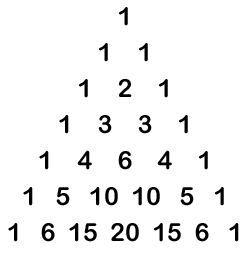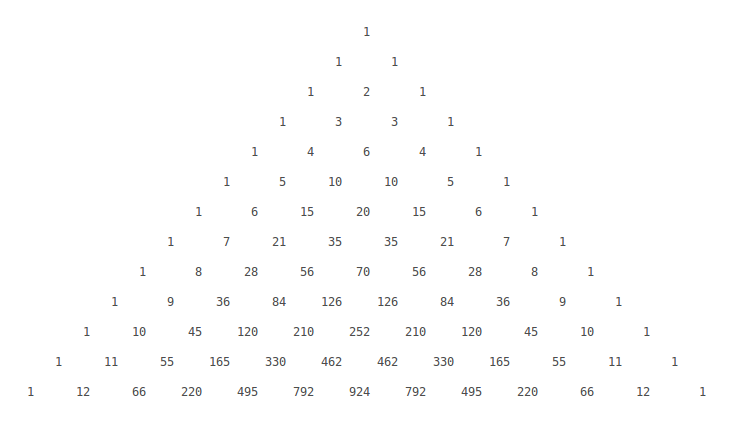Powers of the Binomial
Key Questions
-
Answer:
The power of a binomial is the value of
#n# in the binomial expression#(a+x)^n# .Explanation:
For any value of
#n# , the#n^"th"# power of a binomial is given by:#(x+y)^n=x^n +nx^(n-1)y +(n(n-1))/2x^(n-2)y^2 + … + y^n# The general formula for the expansion is:
#(x+y)^n = sum_(k=0)^n (n!)/((n-k)!k!)x^(n-k)y^k# The coefficients for varying
#x# and#y# can be arranged to form Pascal's triangle.
The
#n^"th"# row in the triangle gives the coefficients of the terms in the#(n-1)^"th"# power of the polynomial. -
Answer:
#(a+b)^3 = a^3+3a^2b+3ab^2+b^3# Explanation:
The coefficients
#1, 3, 3, 1# can be found as a row of Pascal's triangle:
For other powers of a binomial use a different row of Pascal's triangle.
For example:
#(a+b)^5 = a^5+5a^4b+10a^3b^2+10a^2b^3+5ab^4+b^5# How about
#(2x-5)^3# or similar?Let
#a=2x# and#b=-5# to find:#(2x-5)^3# #= (a+b)^3 = a^3+3a^2b+3ab^2+b^3# #=(2x)^3+3(2x)^2(-5)+3(2x)(-5)^2+(-5)^3# #=8x^3-60x^2+150x-125# -
Answer:
I am not sure about what you need, but have a look:
Explanation:
If you have a binomial such as
#(a+b)# and you square it you get:
#(a+b)^2#
but this is the same as:
#(a+b)(a+b)# exactly as
#4^2=4xx4# .The result of
#(a+b)(a+b)# is interesting because you need to multiply each term of the first bracket by each term of the second and add the results!
#(a+b)(a+b)=a*a+a*b+b*a+b*b=a^2+2ab+b^2# Try by yourself with a difficult one:
#(a-b)^2# remembering to consider the signs of each term!